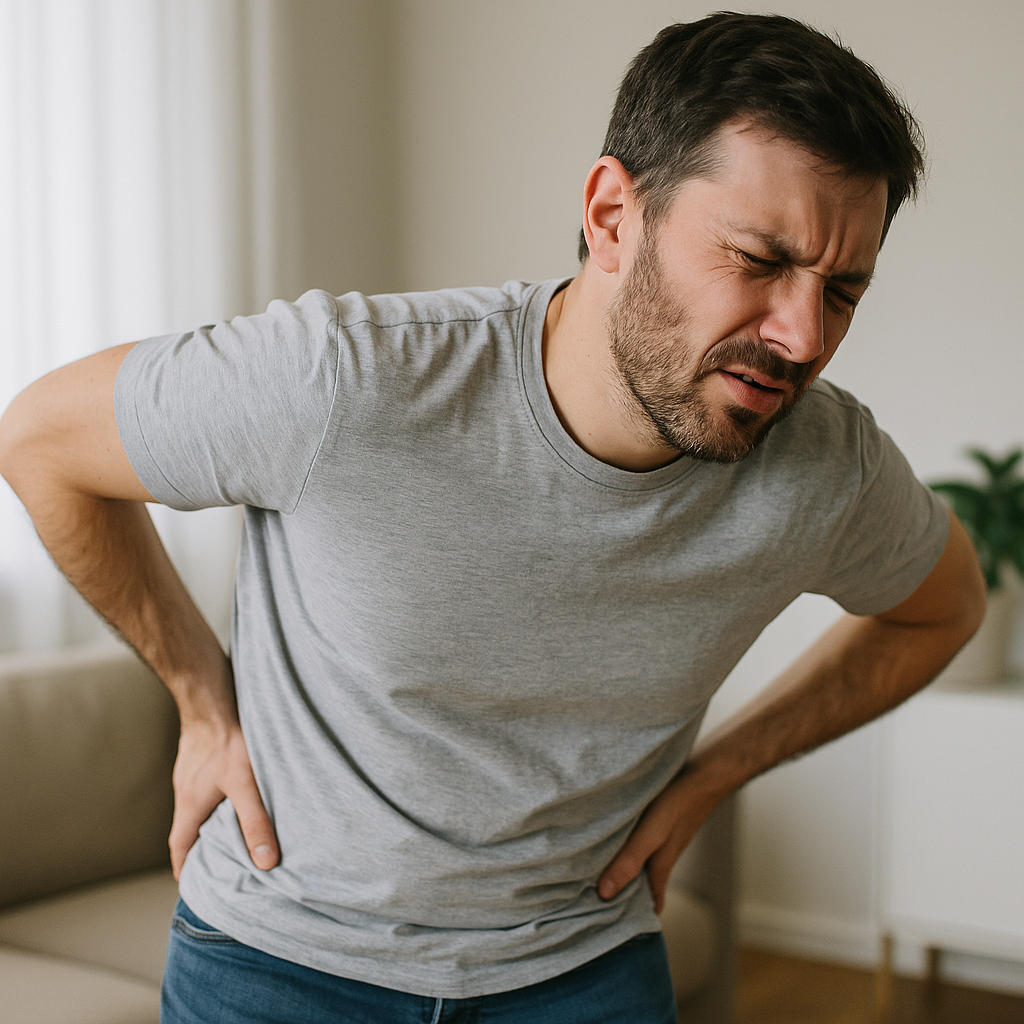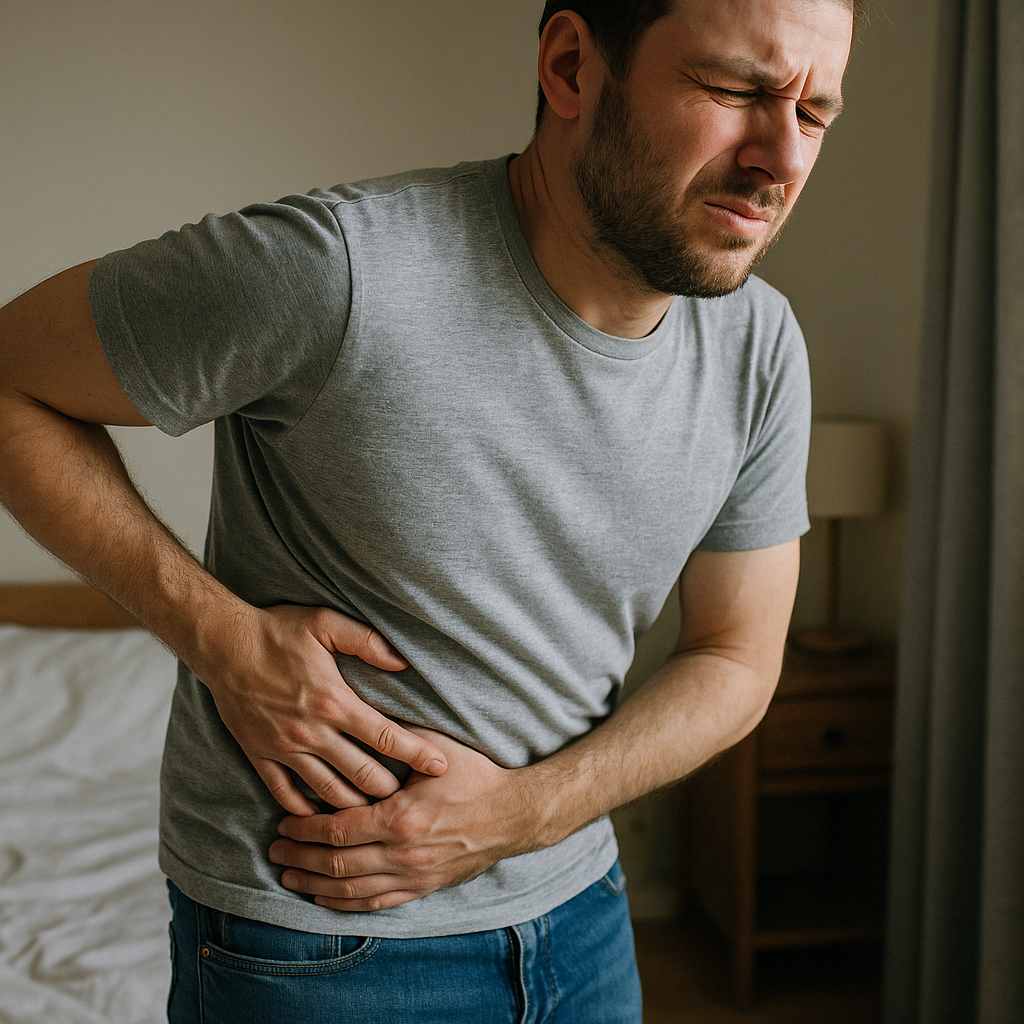What Are the First Signs of Kidney Stones: Early Symptoms and Ayurvedic Understanding

Let’s just say it — the first signs of kidney stones are sneaky. They don’t knock on your door and announce, “Hey, by the way, a jagged mineral blob is forming in your body!” Instead, they whisper. A little back twinge here. A weird bathroom sensation there. And before you know it, you’re doubled over, wondering why you didn’t catch it sooner.
So, here we are. Talking about it. Not because it's fun — kidney stones aren’t exactly cocktail party material — but because catching those early signs can save you from the ouch part later. We're going to look at the early symptoms of kidney stones, what the beginning stages feel like, and (because Western medicine doesn’t have all the answers) how Ayurveda, that ancient and beautifully weird Indian science, makes sense of it all.
Ready to decode the clues your body might be giving you? Let’s dive in.
What Are Kidney Stones and How Ayurveda Sees Them
You’ve probably heard the basic definition before: kidney stones are hard deposits — mostly of calcium, uric acid, or oxalate — that form in the kidneys and can move into the urinary tract. Science says it's a mix of dehydration, diet, genetics, and just bad luck.
But Ayurveda? Oh, Ayurveda gets poetic. It calls kidney stones Mutrashmari — literally meaning "stones in the urine." And it doesn't stop at naming. It goes deep into why your body starts cooking up these little rocks in the first place.
Kidney Stones as Mutrashmari: Dosha-Based Stone Formation
In Ayurvedic terms, it all starts with imbalanced doshas — Vata, Pitta, and Kapha. When Kapha becomes sluggish and sticky, it encourages binding. Pitta, the fiery one, overheats and crystallizes. Vata gets erratic and blocks flow. Throw in some poor digestion, and now Ama (toxins) are clogging up your internal pipes.
Together, these forces create a sort of metaphysical cement mixer in your kidneys. Slowly, methodically, stones begin to take shape.
Role of Pitta, Kapha, and Ama in Early Stone Development
Most people think the pain starts suddenly — and yes, when a stone starts to move, it really starts to hurt. But in the beginning stages of kidney stones, things are quieter. Kapha might cause a feeling of heaviness or dull ache in the lower back. Pitta can create inflammation — maybe a burning sensation during urination. And Ama? It just makes everything feel...off. You’re bloated, sluggish, thirsty all the time but still not peeing much.
You might even feel like something's up — but it’s easy to brush off. That’s why understanding the first signs of kidney stones is so important. It’s about learning to listen earlier.

Early Signs of Kidney Stones and First Symptoms
Let’s get into the real-world stuff. The stuff that happens when you're sitting at your desk, minding your own business, and suddenly you feel...something. Maybe you wouldn’t call it pain just yet. Maybe it’s more like discomfort. A twinge. An “off” feeling. That’s the early stage.
And you’d be surprised — a lot of people actually do experience early kidney stone symptoms. They just don’t realize it’s a warning until later. So let’s break those subtle signs down.
First Sign of Kidney Stones: Flank Discomfort or Ache
This is the one most people mention after the fact.
“I thought I slept wrong.”
“It was probably just sore muscles.”
Nope. That dull ache in your lower back or side (what doctors call the ‘flank’) — that could be the first sign of kidney stones. It’s not screaming pain yet. It doesn’t send you to the ER. But it nags. You might stretch, massage it, change chairs — but it’s still there. Maybe not constant. Maybe it comes and goes. But it’s often the first real clue something’s brewing.
Changes in Urine: Color, Frequency, or Sensation
Another sneaky one.
In the early stages of kidney stones, your urine might start acting...weird. Sometimes it looks darker than usual — like tea. Other times, there’s a pinkish tint (a tiny bit of blood, often not even noticeable unless you’re looking closely).
You might also feel like you have to go all the time — but when you try, not much happens. Or the opposite: you're peeing a river but still feel like you’re not fully empty. There might be a burning sensation too — which people sometimes mistake for a UTI.
Honestly, these early kidney stone symptoms get misdiagnosed all the time. That’s why paying attention to even small changes can make a huge difference.
Early Kidney Stone Symptoms Before Severe Pain Begins
The key here is the before. Everyone talks about kidney stone pain like it’s the stuff of legends — which, to be fair, it kind of is. People have compared it to childbirth, broken bones, being stabbed. But what about the stuff that comes before all that drama?
-
Restlessness. A sense of unease.
-
A little bloating or nausea.
-
Mild fever (especially if there’s an infection creeping in).
-
Weird thirst — like you can’t drink enough water, but your mouth still feels dry.
In other words: your body is trying to say something. You just have to be willing to listen.
Beginning Stages of Kidney Stones in Ayurveda
Ayurveda looks at the beginning stages of kidney stones a bit differently. Instead of waiting for physical pain, it tracks the energy. It says that when Apana Vata — the downward-moving energy in the lower abdomen — gets disturbed, elimination becomes irregular. Urine gets stuck. Ama builds up. And stones form quietly, like mold in a damp room.
Some Ayurvedic texts even describe emotional indicators — irritation, sudden frustration, anxious moods — as signs of internal heat or blocked flow. Sound a little woo-woo? Maybe. But if you’ve ever felt “off” for no obvious reason, only to find out later your body was fighting something... well, it kind of checks out.

Ayurvedic Indicators and Hidden Symptoms of Stone Formation
Not all kidney stone symptoms show up in obvious ways. Some of the earliest signals, especially from an Ayurvedic perspective, live beneath the surface. They’re not about pain — not yet. They’re about pattern disruption. Systems going slightly out of sync.
Digestive and Metabolic Clues in Kidney Stone Onset
Here’s something most people don’t connect to kidney stones: your digestion.
In Ayurveda, digestion isn’t just about food — it’s about agni, the inner fire. When agni weakens, toxins (Ama) build up and start lodging in weak areas. The urinary tract? Prime real estate.
So in the very beginning, you might notice:
-
Heaviness after meals
-
Constipation or incomplete elimination
-
Gas that just lingers
-
Coated tongue in the morning (a major Ama indicator)
-
A weird taste in the mouth — metallic, bitter, or just “off”
These may not scream “kidney stone,” but together, they whisper it. Ayurveda tells us: treat the whisper before it becomes a scream.
Energetic Symptoms Linked to Apana Vata Disturbance
Now this part’s more subtle — and honestly, it can sound a bit esoteric. But stick with me.
Apana Vata governs all things elimination — urine, stool, menstruation, even childbirth. When it’s disturbed, things don’t move right. That stagnation creates an internal pressure cooker.
Some early energetic signs?
-
Feeling “stuck” mentally or emotionally
-
Lower belly heaviness or tension
-
Irregular bowel movements (even if they seem normal at a glance)
-
Lack of downward flow — think incomplete urination, or like you’re holding on without meaning to
It's like your body is trying to let go of something, but can't. That inner jam-up? That’s where kidney stones can start forming.
Urinary Channel Imbalance Before Pain Manifests
According to Ayurveda, the urinary system (Mutravaha srotas) has its own flow dynamics. Before pain begins, subtle imbalances occur:
-
Delay in urine flow starting
-
Stopping and starting midstream
-
Feeling of incomplete emptying
-
Unusual smell — often sharp or acidic
These aren’t full-blown symptoms, but they’re precursors. The early signs of a kidney stone don’t always shout — they simmer.
Conclusion
So yeah — kidney stones don’t always come charging in like a storm. Often, they start with a whisper. A slight change in your urine. A tug in your side. A shift in digestion you barely notice. The first symptoms of kidney stones are sneaky — and that’s kind of the problem. But now, you know what to watch for.
And maybe that’s the whole point: to pay more attention. Not just when pain forces us to, but before it gets there. Whether through modern signs or ancient Ayurvedic insights, your body’s always dropping hints. Start listening.
FAQs
What does a kidney stone feel like in the beginning?
Usually, it starts as a dull ache in the back or side — often confused with muscle pain. There may also be early urinary changes or mild discomfort during urination.
How do I check myself for kidney stones?
You can’t diagnose kidney stones at home with certainty, but paying attention to urine changes (color, frequency, sensation) and early back or abdominal discomfort can give you clues. A doctor may recommend an ultrasound or CT scan for confirmation.
What can be mistaken for kidney stones?
Kidney infections, UTIs, muscle strain, appendicitis, and even ovarian cysts can mimic early kidney stone symptoms. That’s why medical diagnosis matters — the symptoms overlap a lot.
Got any more questions?
Ask Ayurvedic doctor a question and get a consultation online on the problem of your concern in a free or paid mode.
More than 2,000 experienced doctors work and wait for your questions on our site and help users to solve their health problems every day.

